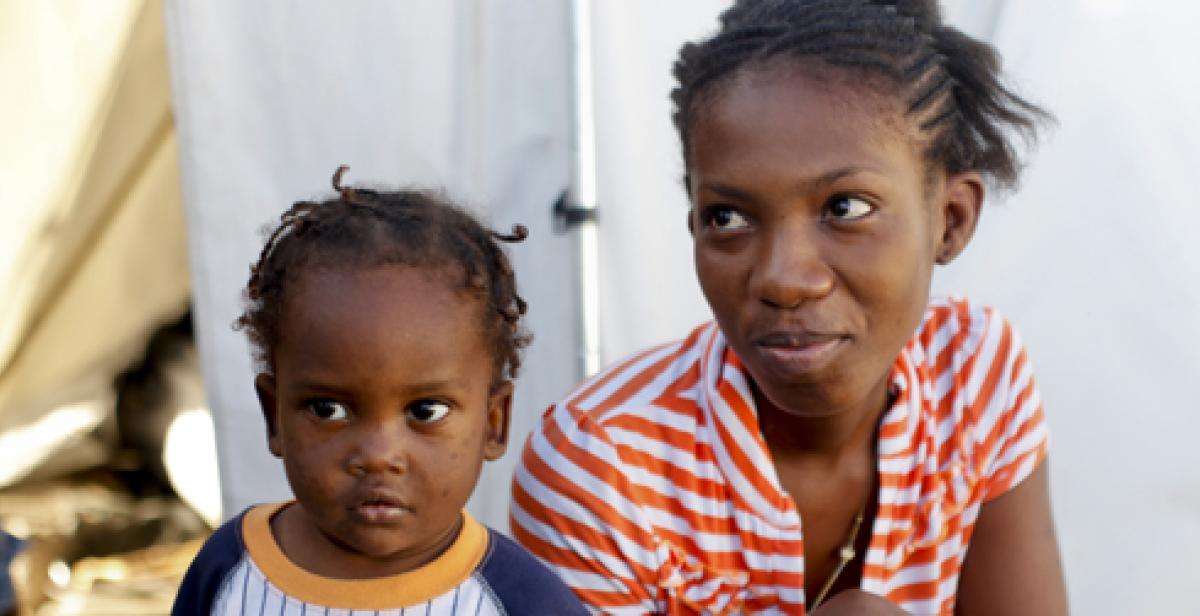As we approach the 2nd anniversary of the 2010 earthquake Lizzette Robleto-Gonzalez asks what the UK's role be in rebuilding Haiti should be?
In a world where modern technology is progressing - whilst at the same rate our attention spans are quickly diminishing - and where the media is constantly on the move in the pursuit of fresh news, keeping Haiti in the eyes of the media and the public is a real contest.
Yet, the plight of Haiti has by no means disappeared – in fact, it’s quite the opposite. Now that the humanitarian phase of the intervention is almost over, the real test starts showing the long road of recovery ahead. Many questions still remain unanswered: How can the international community best support Haiti’s efforts? What is the best approach to development intervention? What are the key priorities in a country where everything is yet to be resolved?
Beneath these questions rests an inevitable truth: Haiti can only undertake this colossal task supported by the international community. But, the international community has to be committed to avoiding making the same mistakes again. This time, there should be no quick fixes for Haiti.
First steps to recovery
At the heart of Haiti’s recovery is the Haitian government, which needs to establish a constant and constructive dialogue with different sectors of its civil society. With a new President in place, and a new Prime Minister and Cabinet that have now taken up office after months of delay, Haiti is ready to start the recovery agenda.
Recovery in Haiti will take a long time and will require more than just money. Better coordination and joint work between all international and multilateral agencies involved in in Haiti are crucial for all these efforts to be successful. Some British NGOs are already making efforts in developing greater coordination and joint programmes, at international and national level, but more efforts are needed. Developing the capacity and skills of individuals, government institutions and civil society organisations so that they are better able to identify and resolve problems themselves is essential for Haiti’s future. And, strategically, the political support from key international community players like the UK is paramount.
Launch of the All Party Parliamentary Group for Haiti
In this context, the recent effort of the UK parliament is commendable stepping up to the challenge of keeping Haiti’s plight alive. On Monday 17 October, a group of peers and parliamentarians officially launched a new All Party Parliamentary Group for Haiti (APPG-Haiti). Lord Griffiths of Burry Port, chairman of this group, hopes that the APPG-Haiti will contribute to fostering greater bilateral relations between the UK and Haiti. He also stated “as Haiti tries to establish itself along democratic lines, we hope to help and be collaborators and partners in that process. We don’t want to tell Haitian parliamentarians what to do – but we want to support them. Parliament has to function and has to hold government to account”.
A group of UK Parliamentarians, which will be led by Lord Griffiths and Lord George Foulkes (APPG-Dominican Republic), accompanied by a delegation of senior British businesspeople, will visit the Dominican Republic and Haiti later in November 2011 to continue the strengthening of UK ties with both countries.
Given the interest that Haiti has generated in the UK - among British NGOs, businesspeople, parliamentarians and members of the public that supported the emergency appeal – so long as our contribution is well coordinated the UK can certainly play a meaningful role in Haiti’s future.
Photo: Cousins Fritznel and Mirlene at Henfrasa Camp in Port-au-Prince in June 2010 (Photo © Natasha Fillion/Progressio)



